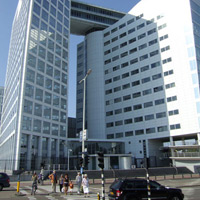
This week the International Contact Group on the Great Lakes Region will meet in The
Hague, Netherlands. This body, consisting of the United States, the United Kingdom,
France, Belgium, the European Union, and the United Nations, aims to meet on a regular
basis and has been convened since the early 2000s. The contact group was created to
address political, diplomatic, security, and development issues in the Great Lakes region of
Africa. The objective of the group is to act as a convener for the regular exchange of information,
the harmonization of messaging, and the identification and discussion of gaps that
exist in regional foreign policy among the member states. The group originally included
countries such as Angola and South Africa but over the years has slimmed down to its
current membership. The group now functions as a North American-European alliance on
assistance, development, security, and economic diversification in the Great Lakes region.
Once again, the upcoming contact group meeting has significant implications for regional
stability, security, and economic development in the Great Lakes. With the recent turmoil
in eastern Congo in the wake of the Bosco Ntaganda mutiny, increasing tensions between
the Rwandan and Congolese militaries, uncertainty around necessary provincial elections
in Congo, the continued efforts to regulate the conflict mineral sector in Congo
and Rwanda, the deployment of U.S. military advisors to the region to pursue the Lord’s
Resistance Army, or LRA, and the recent capture of senior LRA commander Caesar
Acellam, the Great Lakes nations are at a critical turning point with regards to regional
security and multilateral relations with donor states. The very disturbing rebellion orchestrated
by Ntaganda and senior elements of the ex-CNDP, coupled with growing suspicion
of material and political support from the government of Rwanda, should give contact
group members great pause. They must reassess their relationship with Rwanda in regards
to assistance, development, and investment unless very deliberate and transparent steps
are taken to defuse the security and humanitarian crisis in eastern Congo.
The upcoming meeting at The Hague will likely focus on four urgent subject areas:
security reform and civilian protection in eastern Congo, continued irregularities in the
Congolese political process and the upcoming provincial elections, continued reform
in the conflict minerals sector, and armed groups and regional dynamics including the
FDLR and LRA. As a whole, these areas represent core impediments to peace, stability,
and development in the Great Lakes. The following are recommendations to the group
on specific elements of each subject area where this body can act to create real progress to
mitigate conflict and fill critical gaps in cross-border coordination and communication.

